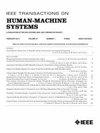WiOpen:基于 Wi-Fi 的鲁棒开放集手势识别框架
IF 4.4
3区 计算机科学
Q2 COMPUTER SCIENCE, ARTIFICIAL INTELLIGENCE
引用次数: 0
摘要
近年来,人们对基于wi - fi的手势识别越来越感兴趣。然而,现有的工作主要集中在闭集范式上,其中所有的测试手势都是在训练期间预定义的。这在实际应用程序中构成了一个重大挑战,因为在测试期间,不可见的手势可能会被错误地分类为已知的类。为了解决这个问题,我们提出了WiOpen,一个基于wi - fi的鲁棒开放集手势识别(OSGR)框架。实现OSGR需要解决Wi-Fi传感中独特的不确定性带来的挑战。这种由噪声和域引起的不确定性导致收集到的Wi-Fi传感数据分布广泛分散和不规则。因此,类之间的数据歧义和定义适当的决策边界以识别未知因素的挑战出现了。为了应对这些挑战,WiOpen采用了一种双重方法来消除不确定性并定义精确的决策边界。首先,它利用信道状态信息(CSI)比率来解决数据预处理过程中噪声引起的不确定性。其次,基于不确定性量化方法设计OSGR网络。在整个学习过程中,该网络有效地减轻了源于域的不确定性。最终,网络利用样本邻居之间的关系动态定义开集决策边界,成功实现OSGR。在可公开访问的数据集上进行的全面实验证实了WiOpen的有效性。本文章由计算机程序翻译,如有差异,请以英文原文为准。
WiOpen: A Robust Wi-Fi-Based Open-Set Gesture Recognition Framework
Recent years have witnessed a growing interest in Wi-Fi-based gesture recognition. However, existing works have predominantly focused on closed-set paradigms, where all testing gestures are predefined during training. This poses a significant challenge in real-world applications, as unseen gestures might be misclassified as known class during testing. To address this issue, we propose WiOpen, a robust Wi-Fi-based open-set gesture recognition (OSGR) framework. Implementing OSGR requires addressing challenges caused by the unique uncertainty in Wi-Fi sensing. This uncertainty, resulting from noise and domains, leads to widely scattered and irregular data distributions in collected Wi-Fi sensing data. Consequently, data ambiguity between classes and challenges in defining appropriate decision boundaries to identify unknowns arise. To tackle these challenges, WiOpen adopts a twofold approach to eliminate uncertainty and define precise decision boundaries. Initially, it addresses uncertainty induced by noise during data preprocessing by utilizing the channel state information (CSI) ratio. Next, it designs the OSGR network based on an uncertainty quantification method. Throughout the learning process, this network effectively mitigates uncertainty stemming from domains. Ultimately, the network leverages relationships among samples' neighbors to dynamically define open-set decision boundaries, successfully realizing OSGR. Comprehensive experiments on publicly accessible datasets confirm WiOpen's effectiveness.
求助全文
通过发布文献求助,成功后即可免费获取论文全文。
去求助
来源期刊

IEEE Transactions on Human-Machine Systems
COMPUTER SCIENCE, ARTIFICIAL INTELLIGENCE-COMPUTER SCIENCE, CYBERNETICS
CiteScore
7.10
自引率
11.10%
发文量
136
期刊介绍:
The scope of the IEEE Transactions on Human-Machine Systems includes the fields of human machine systems. It covers human systems and human organizational interactions including cognitive ergonomics, system test and evaluation, and human information processing concerns in systems and organizations.
 求助内容:
求助内容: 应助结果提醒方式:
应助结果提醒方式:


